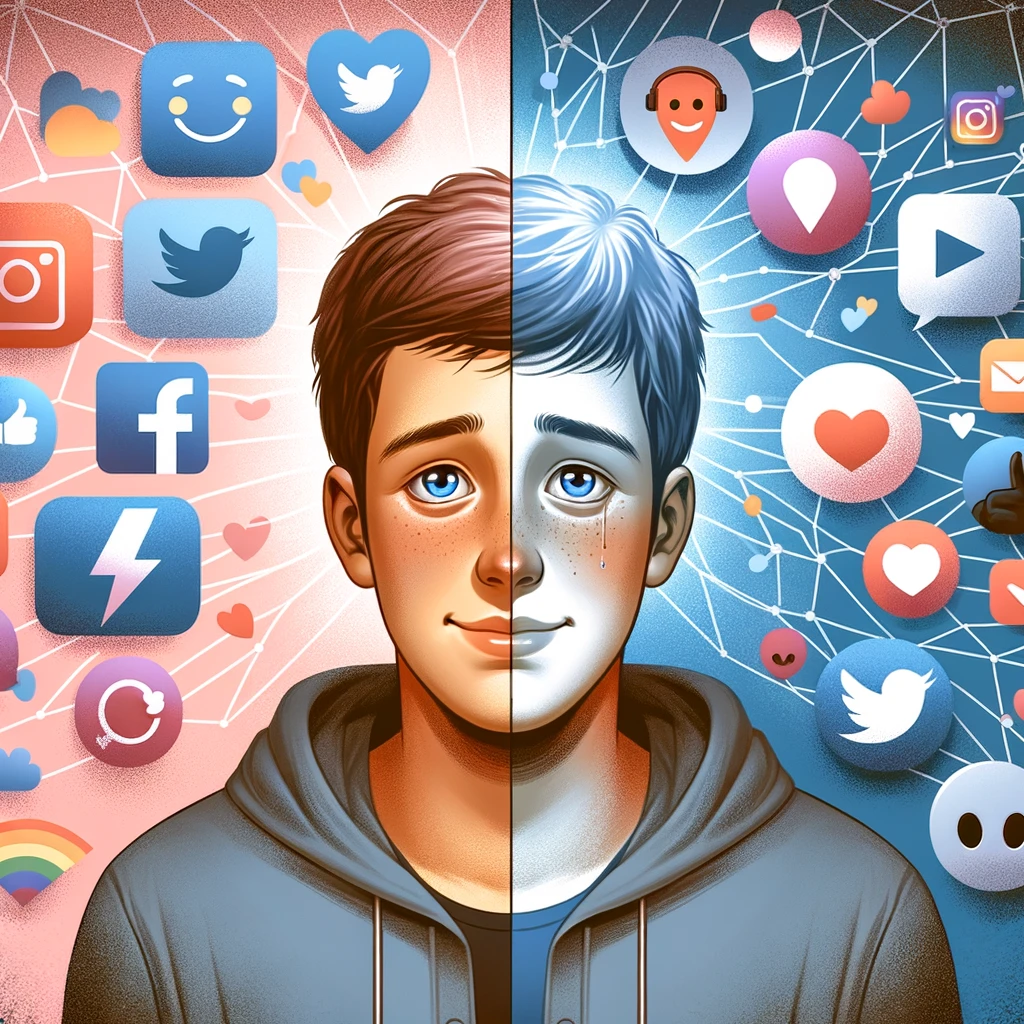The Effects of Social Media on Teen Mental Health

In the digital age, social media has become a ubiquitous part of teenage life. While it offers numerous benefits, like staying connected with friends and family and accessing educational content, its impact on mental health has become a growing concern. Let’s delve into how social media usage can affect the mental well-being of teenagers, shedding light on both the positive and negative aspects.
Understanding the Digital Landscape
Today’s teenagers have never known a world without the internet. Social media platforms like Instagram, Snapchat, and TikTok are not just tools for communication; they are integral to how teens form their identities, socialize, and perceive the world around them.
The Positive Aspects
Social media can have several positive effects on teen mental health:
- Connection and Community: It provides a platform for teens to connect with others who share similar interests, creating a sense of belonging and community.
- Self-Expression and Identity Formation: Social media allows teens to explore and express their identities in a diverse and global environment.
- Access to Information and Support: It offers access to a wealth of information on mental health resources and provides a space for teens to seek support.
The Negative Impacts
However, excessive or unhealthy social media use can lead to negative mental health outcomes:
- Anxiety and Depression: Constant exposure to the curated lives of others can lead to feelings of inadequacy and low self-esteem, contributing to anxiety and depression.
- Cyberbullying: Social media can be a platform for bullying and harassment, which can have severe effects on a teen’s mental health.
- Sleep Disruption: Excessive use, especially before bedtime, can interfere with sleep patterns, leading to poor sleep quality.
- Addiction: The compulsive need to check social media can disrupt daily life and lead to addictive behaviors.
Navigating the Challenges
Parents, educators, and mental health professionals play a vital role in helping teens navigate the challenges of social media. Here are some strategies:
- Open Dialogue: Encourage open conversations about online experiences and the impact of social media on emotions and self-esteem.
- Education on Digital Literacy: Teach teens to critically evaluate the information and interactions they encounter on social media.
- Setting Boundaries: Establish healthy boundaries for social media use, including time limits and no-phone zones or times.
- Promoting Offline Activities: Encourage teens to engage in offline activities and hobbies that foster a sense of achievement and real-world connections.
- Professional Help: If a teen shows signs of mental health issues related to social media use, seeking professional help from a counselor or psychologist is crucial.
The relationship between social media and teen mental health is complex. While it can be a source of support and self-expression, it can also contribute to mental health challenges. Understanding these impacts and fostering healthy social media habits are vital steps in ensuring the well-being of our teenagers. It’s about finding a balance, where social media becomes a tool for positive growth rather than a hindrance to mental health.


